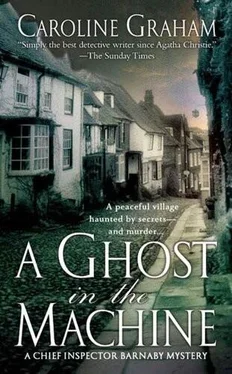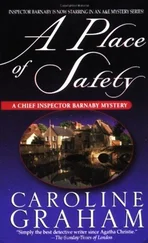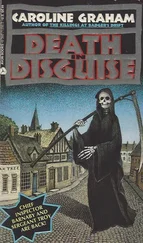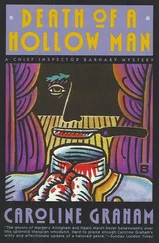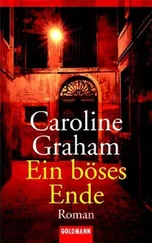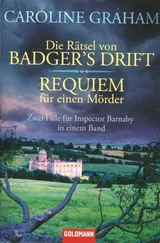“What ‘might not be possible’?”
“They say Benny—”
“Oh, no!” cried Kate. “She can’t…she’s in no state to answer questions. She can’t even talk to us.”
“Don’t get upset—”
“It’s just not on, Mal. If she was still in hospital they couldn’t call her.”
“I’ll get hold of Cornwell. He’ll have a word with them, explain the situation.”
But to both Kate and Mallory’s surprise when Jim Cornwell called around after a visit to Benny’s flat he said she was determined to go to the inquest. She was, in fact, quite fierce about this.
Both the Lawsons were disturbed at the news. Convinced that Benny had not really grasped what an inquest involved, they hoped, by the time Friday arrived, to have persuaded her against it.
The next thirty-six hours passed in a sort of limbo.
Things that had to be done were done. Benny pulled up a lot of weeds and watered tomatoes and peppers in the greenhouse. Doris came, cleaned, gossiped in a generalised, harmless way, and went. Kate and Mallory worked through nearly all the mail bags. Just a couple, the very first to arrive and consequently at the bottom of the pile, remained.
The submissions were almost as dire as Kate had feared. A few had the saving grace of being funny, albeit unintentionally. Mallory dipped into one, gushingly overwritten and starry-eyed, all about putting on a school musical. He had sat in on enough rehearsals of such mind-numbing entertainments to last him several lifetimes. All the performers wanted to be pop stars and the show was invariably misdirected by a completely talentless English teacher flinging himself excitedly about the stage like Warner Baxter in 42nd Street.
“Look at this,” Kate was exclaiming now. She had emptied the first of the remaining bags and was holding a long, narrow parcel wrapped in heavy watermarked parchment and sealed with red wax. It had an air of tremendous self-importance. Inside there were folds within folds of stiff brown paper tied with curtain cord and also sealed. There was a covering letter.
“It’s from a Mr. Matlock.” She opened the letter. “Sidney. Who is ‘the sole surviving member of a post-war observation team and whose work, scrupulously annotated, herewith comprises this noble document.’”
Mallory laughed out loud. “You’re kidding.”
“Maybe we’ve found another Spycatcher. It’s certainly in some sort of code.”
“Let’s have a look.”
Kate passed some sheets of foolscap over. They were set out in columns. Engine capacity and numbers. Fuel load. Departure and destination times. Locomotive base shed. Name and number of driver and fireman. It was proudly described The Precise History of Locomotives Departing and Returning from Euston Station to Nuneaton Trent Valley During the Years 1948–1957.
“Trainspotting!”
“Don’t laugh,” said Kate. “It’s his life. Poor old man.” She replaced the book in its envelope and decided to use registered mail when sending it back. That was another thing she had thought of too late: return postage. She would make sure it was mentioned in any future advertisements.
They checked out the remaining manuscripts. One, described as the writer’s “hilairos adventures in Morroco,” was called: Thongs Aint What They Used To Be. It had beer stains and lots of strangely placed quotation marks. Kate liked “fish ‘and’ chips” best. There was a thriller calling itself fast-paced, with a plot that started on page 160 and finished three paragraphs later. A comedy – Lord of the Flies – about a randy window cleaner, and a sad ecological tome about a tribe of frogs who caught a virus from polluted lily leaves and were making their way to the promised sea led by a philosophical windbag, Old Croaker. The others were mainly dreary diaries styled after the manner of Bridget Jones, but without the jokes and decent prose style.
“No good?”
“Makes Tom Clancy look like Homer.”
“I thought Homer had a beard.”
“Let’s open a bottle.”
The three of them ate together that night. Mallory and Kate, walking on eggshells, made innocuous conversation. They touched on the garden, the hopeful news about Ashley’s illness, the warm beauty of the day. Benny said very little but ate most of what was on her plate before laying her knife and fork edge to edge together. Kate recalled a phrase her mother frequently used about people recovering from an illness or unexpected disaster. “Going gently along.”
Earlier, before Benny arrived, Kate and Mallory had discussed whether or not to mention the inquest. They decided, if Benny herself did not bring the matter up, they would not. Both still hoped she had changed her mind. But then, toying with a bowl of raspberries still warm from the sun, Benny began to talk about it.
First she asked a few questions and was reassured. Yes, they would be taking her and bringing her home. Yes, Mallory was certain they would all be able to sit together. No, there wouldn’t be a witness box and judge and people in wigs. And he was sure there was still time to get some sort of dispensation if Benny was worried.
But Benny was not worried. Something – she had assumed it was the drugs, though they must have worn off by now – was holding the terrible events of the present and immediate past at bay. It was as if she viewed them through the wrong end of a telescope. Far distant and shrunken, they had lost the power to harm. But Benny also understood that this situation was temporary. That the pain – and she knew it was there, crouching, biding its time – was merely on hold.
She didn’t have the time or energy, though, to grieve right now. Things had to be put right, procedures followed, starting with the inquest tomorrow. That was the first step. Then the investigation. Then the capture and punishment of whoever had committed this wicked, wicked crime.
The coroner’s court was packed. Everyone from Forbes Abbot who was not housebound or working was present, and several, it was noted, who should have been at work and who appeared to have taken the day off.
As cleaner of the premises that had housed the lethal machinery Mrs. Crudge had half expected to be called and had had many serious conversations with Ernest as to how best to present her evidence and what hat to wear. Now, uncalled but still feeling entitled to a certain status, she seated herself in a prominent position next to the Lawsons and Benny Frayle.
The proceedings opened with evidence from Mallory Lawson of Appleby House, Forbes Abbot. On the evening of Tuesday the twenty-fourth of July he was expecting a friend Dennis Brinkley for dinner. When Mr. Brinkley did not arrive he called at his house in Hospital Lane, Forbes Abbot. Here he found the body of a man, later identified as Mr. Brinkley. He did not touch or handle the remains in any way but notified the police.
Sergeant Roy Gresham of the Causton Constabulary gave the time of his arrival at Kinders as 8:23 p.m. and continued: “After viewing the body I called for an ambulance and a police photographer. I obtained the name of the dead man’s doctor from Mr. Lawson and contacted him. I examined the scene and could see no outward sign of foul play or that any other person had been present there.”
At this there was a cry from the court and Doris saw Benny’s auburn wig turning urgently to Kate, who was sitting next to her. Everyone was straining to see who had called out and murmuring among themselves. The coroner appealed for quiet and Benny subsided, Kate’s arm around her shoulder.
“I also,” concluded Sergeant Gresham, “failed to discover a note or message of any kind from Mr. Brinkley.”
“You wouldn’t,” cried Benny, not bothering to lower her voice.
Читать дальше
